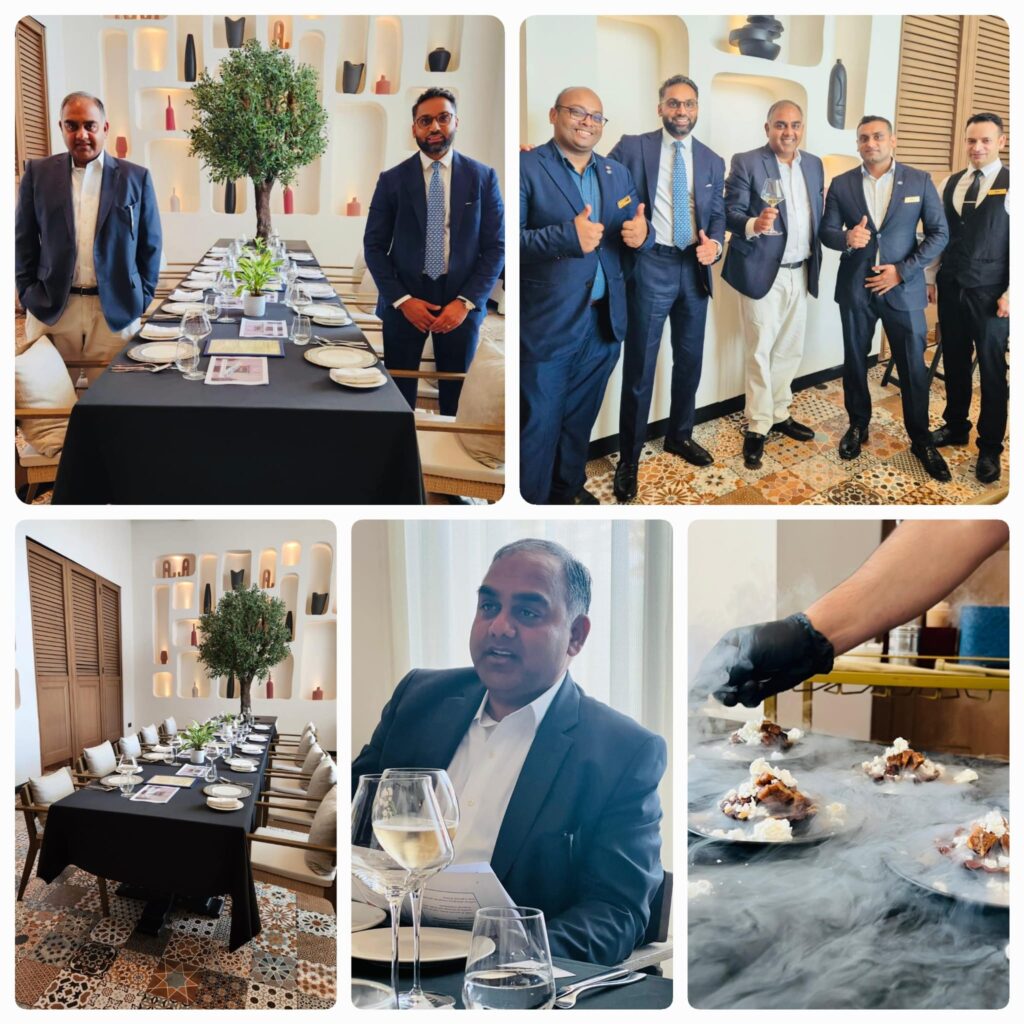
Hosts: Vikash Gupta & Chirag Patel
Keynote Speaker: Vikrant Bhargava
Attendees: Family Office Principals and UHNWI’s
The session was comprehensive, focused, and thought-provoking for all Principals who currently have or are in the process of establishing a Single-Family Office.
Key topics discussed and takeaways:
- Asset Management Considerations
- Points:
Discussion about multi-family offices (MFO) potentially replacing single-family offices (SFO).
Emphasis on target returns versus expenses in asset management.
Decision-making around whether to handle investments in-house or outsourced, and questions about how many portfolio managers to employ and their roles.
- Output:
Participants discussed strategies such as setting up family offices, diversifying investments, and using external managers for asset allocation.
Families must first evaluate whether they are ready for a fully-fledged in-house family office (SFO) or if an outsourced multi-family office (MFO) would better suit their needs. This decision depends on their ability to recruit the right talent and expertise, as well as the associated costs and accountability.
Even with an in-house team, it’s wise to initially engage a small group of external managers (around five). Over time, families can assess which managers are best suited for their specific asset classes and narrow the selection if necessary.
All participants agreed that expected return expectations is driven by overall personal balance sheets and therefore the risk tolerance applicable.
- Conclusion:
The foundation of establishing a strong SFO lies in understanding the jurisdiction and setting up the appropriate structures. Engaging the right advisors, who truly grasp the family’s goals and vision, is crucial.
All participants agreed that while the final decision on investment opportunities should rest with the family, a well-functioning SFO recognizes the strengths and weaknesses of each team member and ensures active involvement in decision-making.
Effective governance and strong controls are essential for a good SFO. There should be a balance between allowing autonomy in decision-making and ensuring accountability.
Once wealth is generated, the focus shifts to preserving it rather than taking huge amounts of risks. A well-managed SFO will diversify its assets across various classes, with an expected return of 3-5% above cash, depending on the risk profile.
It was generally agreed that outsourcing certain mandates to specialized managers can offer additional expertise and accountability, benefiting the family’s overall strategy.
- Investment Strategy
- Points:
Diversification is highlighted as a key principle.
Debate over who should decide asset allocation, with mention of the family’s role versus professional advisors.
- Output:
Discussion reflects on market volatility, with insights on concentration risks associated with high-performing stocks, like those in the S&P 500 and NASDAQ. One participant warns about potential corrections, while others debate passive versus active investment strategies, especially in turbulent markets.
Several participants agreed that a committee for security selection is vital to fully analyse each idea however it should be a family member who decides if an idea is executed. One participant said initially they were hands-on but over time has allowed his team freedom in security selection for more accountable and ownership.
- Conclusion:
There’s emphasis on long-term investment perspectives, balancing risk, and managing both direct equity and managed portfolios. For instance, one participant prefers an 80-90% equity allocation over holding cash, while others highlight the importance of maintaining a conservative, well-diversified portfolio.
- Governance within a Family Office
- Points:
Structure and accountability.
Family involvement and succession planning.1
- Output:
The discussion covered how different families approach wealth transfer to younger generations, including conditional distributions based on career choices, need-based distributions, or phased inheritance releases based on personal milestones. Some families emphasise instilling responsibility by letting younger members manage smaller sums to learn from mistakes early. The conversation included challenges in engaging the next generation in managing family wealth. Several approaches to handling family assets were debated, such as splitting portfolios for accountability, establishing clear structures for distribution, and implementing a governance framework to avoid conflict.
- Conclusion:
For families with multiple beneficiaries, it’s essential to allocate individual portions to each beneficiary. Although each family may have internal agreements on how wealth is divided, these arrangements should be transparent and clearly communicated to avoid conflicts in the future.
Family members should be given the opportunity to manage their own allocations as early as possible. Making mistakes is part of the learning process, and the sooner these lessons are learned, the better the chances of preserving the family’s wealth over the long term.
One individual assigned to be accountable with frequent reporting.
- Philanthropy and Giving
- Points:
Philanthropy viewed as a personal commitment, even described as a “third child.”
Importance of multiplication effects in giving and a wide range of giving activities driven by personal values.
Early engagement in giving, allowing recipients to make mistakes early on, and setting a budget for philanthropy.
- Output:
There were varying views on this topic. One speaker shares a personal strategy of using technology to enhance philanthropic impact, creating platforms for NGOs to raise funds efficiently. The discussion touched on philanthropic approaches that emphasise scalability and leveraging resources, with several participants sharing how their families manage charitable contributions, primarily in India, focusing on education and healthcare.
- Conclusion:
Philanthropic work is carried in many ways with some participants setting up foundations whilst others doing CSR through their businesses.
It was notable that philanthropy was very much dependant on where each participant was in their wealth journey.
Disclaimer:
This message is provided for information purposes and should not be construed as a solicitation or offer to buy or sell any securities or related financial instruments, nor does the information constitute advice or an expression of our view as to whether a particular financial product is appropriate for you. Please note that we do not provide any tax or legal advice and clients must seek their own tax advice independently.
VAR Capital is an independent financial services firm offering asset management, lending and family office services. It was founded by individuals with extensive experience from Banking, Asset Management and Family Offices. Based in Mayfair, London, VAR Capital Ltd is authorised and regulated by the Financial Conduct Authority (FCA).
Source: VAR Capital
Media Contact: Vikash Gupta, [email protected]
Contact
41 & 43, Maddox Street
Mayfair, London
W1S 2PD
+44 207 0960 790
VAR Capital Ltd is a limited company incorporated in England and Wales with registration number 09159540. UK registered office 41 & 43, Maddox Street, Mayfair, London W1S 2PD. VAR Capital Ltd is authorised and regulated by the Financial Conduct Authority (FCA). Firm reference number 718558. VAR Capital is a trademark of VAR Capital Limited under the UK intellectual property regulation. Trademark number: UK00003429839



